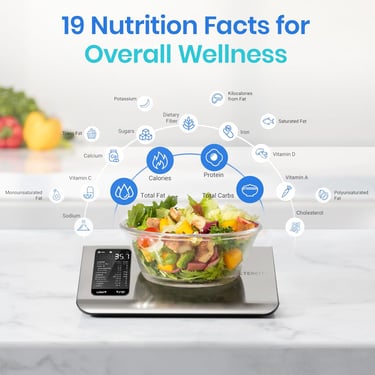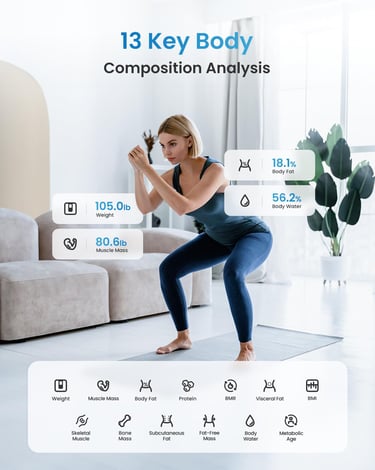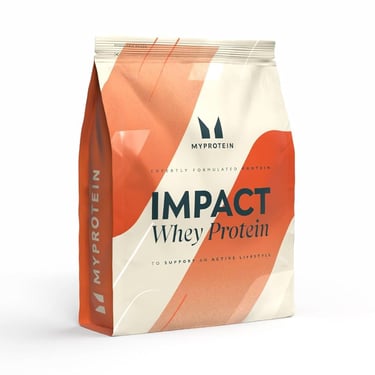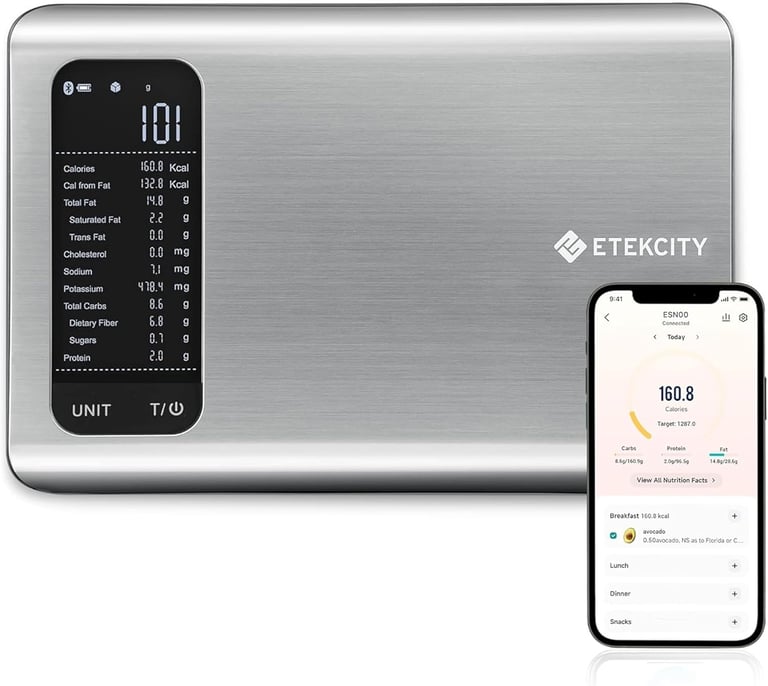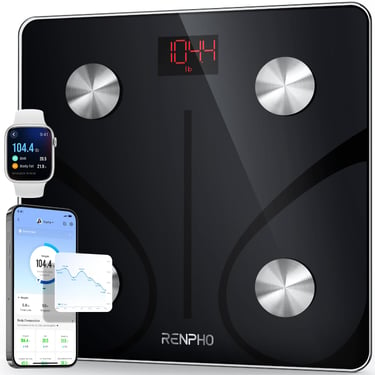“How Much Protein Do You Need Per Day by Age and Weight? Complete Guide with Examples”
Discover the importance of protein for your body, including its role in muscle repair, healthy hair, and energy levels. Learn how much protein you need daily based on your age, weight, and activity level, with practical tools and examples to meet your protein intake goals.
9/12/20253 min read
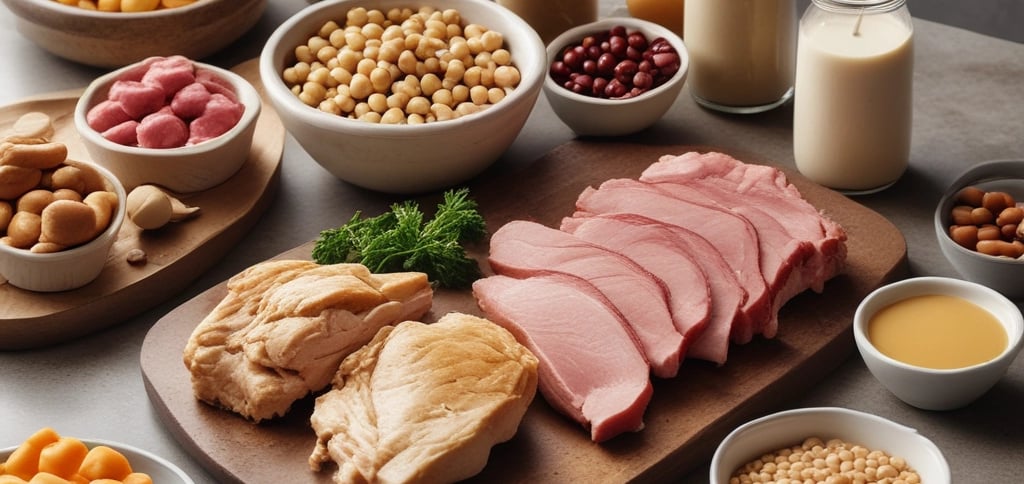

Protein is one of the most important nutrients for your body. It helps build and repair muscle, supports healthy hair and skin, and keeps your energy levels steady. But here’s the big question: how much protein do you really need per day?
The answer depends on your age, weight, and activity level. In this guide, we’ll break it down step by step, give you easy examples, and show you practical tools (like smart food scales) that make hitting your protein goals simple.
🧬 Why Is Protein So Important?
Protein plays a key role in:
Building and repairing muscle tissue
Strengthening skin, hair, and nails
Producing enzymes and hormones
Speeding up recovery after exercise
👉 A diet too low in protein can lead to fatigue, muscle loss, and poor recovery.
⚖️ How Much Protein Per Day Based on Weight
The general rule is:
👉 1.2 to 2 grams of protein per kilogram of body weight per day.
Sedentary people: 1.2 – 1.4 g/kg
Active people: 1.6 – 1.8 g/kg
Strength training or athletes: up to 2 g/kg
Practical Example
A 70 kg (154 lbs) sedentary adult → 85–100 g of protein per day
A 70 kg active gym-goer → 110–130 g of protein per day
⏳ Protein Needs by Age
Teenagers (13–18 years): about 1.6 g/kg due to growth
Adults (20–40 years): follow standard range depending on lifestyle
Adults over 50: aim for ~1.8 g/kg to prevent muscle loss (sarcopenia)
🥗 Best Protein Sources
Animal-based: chicken, fish, eggs, Greek yogurt
Plant-based: lentils, chickpeas, tofu, quinoa
Protein supplements: if you struggle to hit your target, powders are an easy solution. Brands like Myprotein offer whey, vegan, and lactose-free protein options that mix easily into smoothies, oatmeal, or even coffee.
📱 Tools That Make Tracking Protein Easier
It’s easy to think you’re eating enough protein, but most people fall short. That’s where smart tools help:
Smart food scales: weigh meals precisely and sync with apps to show calories and macros. The best selling smart food scale on amazon is the Etekcity.
Smart body scales: track weight, fat %, and muscle mass to see how your body composition changes over time. This example lets you connect your phone to keep track of your progress.
These gadgets make hitting your protein target more accurate and less guesswork.
🍳Example High-Protein Meal Plan (120 g/day)
Breakfast: 2 eggs + Greek yogurt (20 g)
Snack: protein shake (Myprotein whey, 25 g)
Lunch: 150 g chicken breast + 100 g quinoa (40 g)
Snack: hummus with chickpeas + veggies (15 g)
Dinner: 200 g baked salmon (30 g)
✅ Conclusion
The right amount of protein depends on your age, weight, and activity level. Using high-quality supplements like Myprotein combined with smart food scales and smart body scales makes it easier to stay on track.
With the right plan, you can hit your daily protein target, boost recovery, and support your long-term health goals.
